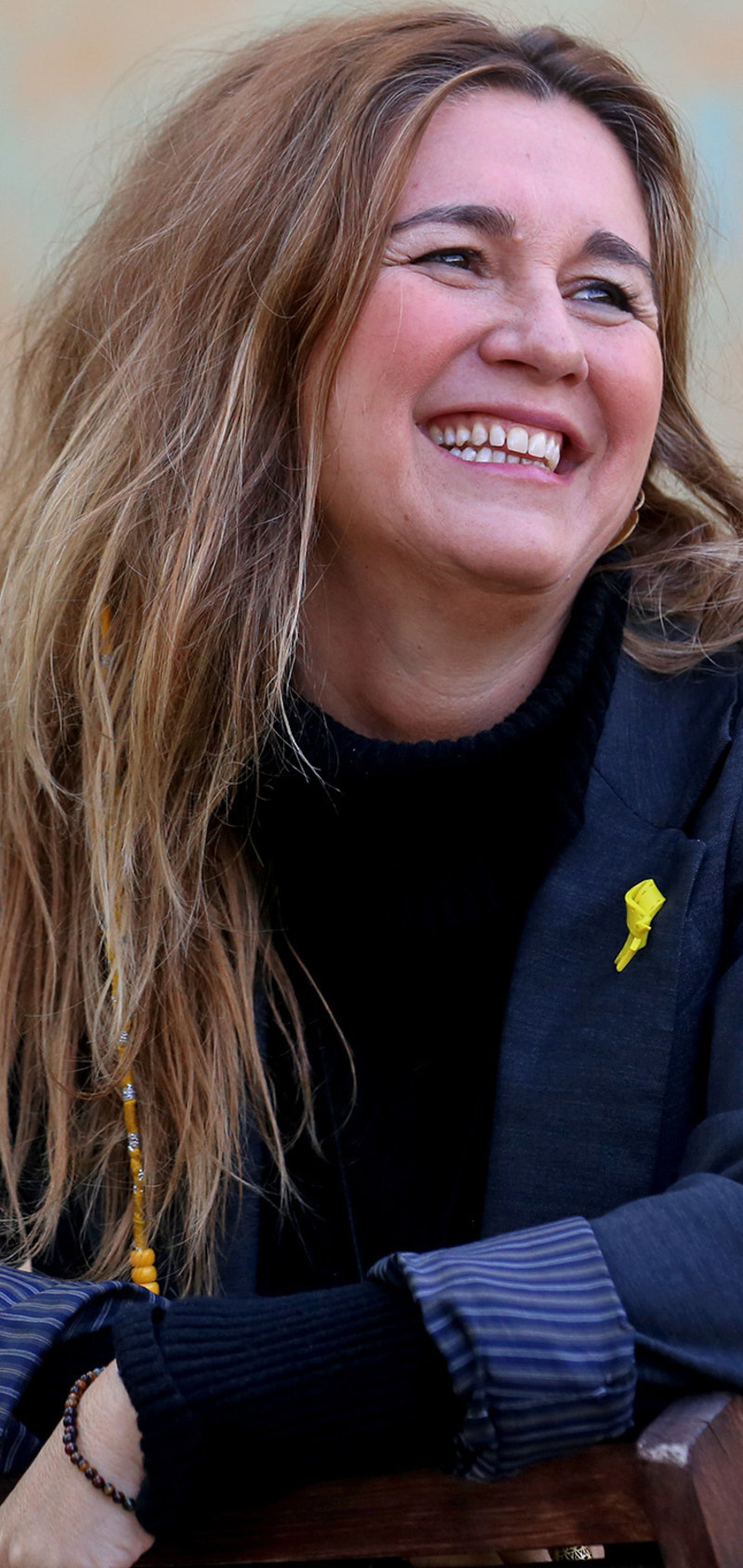Writer and publisher Iolanda Batallé was recently appointed head of the Ramon Llull Institute, which promotes Catalan language and culture abroad.
What are the institute’s priorities?
A question I try to answer is: “What about the map?” The former head of the Llull, Manel Forcano, put a lot of focus on the Mediterranean. But I think it should be all of Europe and the map is not only geographical, but also digital. And it’s not just about sending a theatre group or a dancer somewhere. Exporting the language and culture is not only about sending people abroad, it’s also about taking action within. I strive for more communication and to open up to the world. Exporting Catalan language and literature is also about bringing creators, teachers, translators, students here, and for them to experience the country. That way they then take home the landscape, the territory, and most importantly, the experience.
One of the first things you did was appoint Ariadna Puiggené as the new head of the Universities section.
Having 150 universities where Catalan is taught and in which the institute has a role is great for the language and the culture; it allows a lot of people to learn Catalan abroad, who end up becoming translators or people involved with Catalan and Catalonia. That is very important.
Is it the best way to spread Catalan?
It’s not the only way, we have to be aware that not only do people have access to languages through academic means, but also in the digital sphere. I discovered the Duolinguo platform, on which there are 600,000 people with access to Catalan, through Spanish. And the Llull is not on this, but should be. That is why we will soon start recruitment for a head of digital strategy, who will be charged with exploring this new area.
So, is it now easier to get access to Catalan than before?
What happens these days is that people get to it in different ways and not only through education. At the Llull we have to be aware of that. People reach Catalan because they like Barça or because they watch the Merlí TV series on Netflix.
What other areas need filling?
We still need someone for the London office. The recruitment period for that is now closed. There are some 30 candidates, all of them very well prepared. We will have completed the selection process by the end of January. As already mentioned, we need to find someone for digital strategy. And we are working on getting a delegate in Rome, because we think we should be there.
What’s the institute’s relationship with the government’s offices abroad?
The relationship is that they almost always share the same space, and they work together whenever possible.
And with the Cervantes Institute [Spain’s version of the Ramon Llull Institute]?
We still haven’t sat down with the head of the Cervantes Institute, but it’s a meeting that will happen. Someone I have met is the head of the Culture section of the Cervantes, Martín López Vega. When he was first appointed he asked if the Llull’s specialists in Catalan cinema, art and literature could provide advice, and naturally we said yes.
Do all these mechanisms work according to a specific philosophy?
One of my mottos is: “Please, let’s join forces.” We have a section for literature, one for thought, one for creativity, but when, for example, we send a writer to New York, where we have a delegate and a university, please, let’s bring those elements together and be more efficient. If we are working with an individual, we have to work with them in all areas. And that is something I apply to myself. Every time I go somewhere, I try to do something else, beyond the thing that took me there. I went to Paris recently and I made time to get an exhibition at the Pompidou centre for the RCR architects, who we had at the Biennale. Apart from the main reason for the trip, I try to meet lecturers, or if we have a study centre there, I try to meet its director. It is fundamental that we incorporate the idea of working across fields. And this concept is key for everyone working at the institute, because all areas are affected. The other element to my philosophy at the Llull is understanding that promoting Catalan language and culture around the world is a two-way street, as it’s not enough just to send people to places. There is no need for so much physical relocation. Personal experience is very important, but there are other means.
In other words, there is no need for such large projects as the Frankfurt fair?
No, on the contrary. What you find if you look at what has been done in recent years, is that there have been lots of micro-actions, but I think it is better to have two or three large things every year. It’s important. We are now preparing to go to Buenos Aires, because I believe there are not enough translations between Catalonia and Latin America. And in 2020, the spotlight will be on us in London, not as a guest culture per se, but one that is highlighted.
Have you resolved the controversy of Catalan writers who write in Spanish?
In this case we will go to Buenos Aires along with the Barcelona city council, with Barcelona as a literary city, and that will obviously involve both Catalan and Spanish. And, as it will be in Latin America, we have called on Catalan writers who have published something in Spanish.
interview

